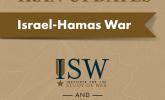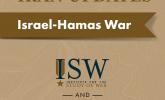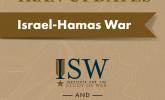Russian Offensive Campaign Assessment, February 25, 2024
February 25, 2024 - ISW Press
Russian officials and state media largely refrained from publicly discussing the two-year anniversary of Russia’s full-scale invasion of Ukraine on February 24, likely in an effort to avoid addressing Russia’s failure to achieve its stated war aims at significant human costs. Russian opposition outlet Agentstvo Novosti reported on February 25 that Russian state TV channels Rossiya 1 and Channel One (Perviy Kanal) and Gazprom Media-owned TV channel NTV did not mention the two-year anniversary of the start of Russia’s full-scale invasion of Ukraine in broadcasts on February 24.










